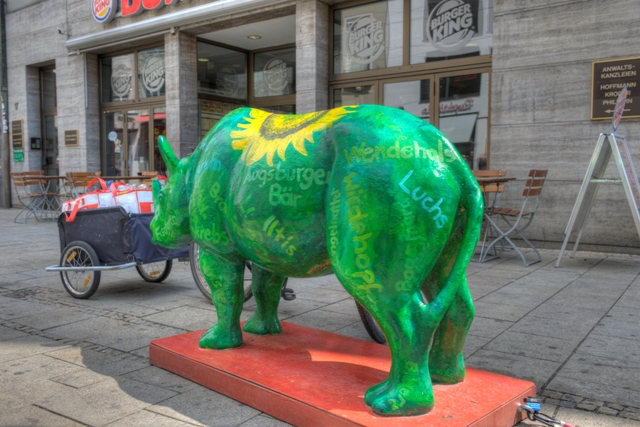Thanks to FIFA holding some of the Women's World Cup matches so near to Munich, we recently made a couple of day trips over to Augsburg.
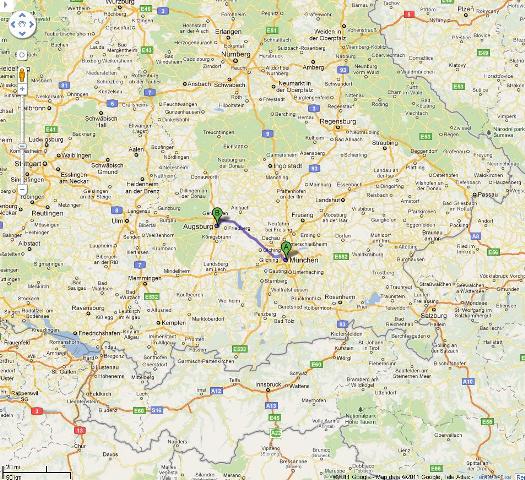
The first thing to know is that going to Augsburg from central Munich takes almost exactly as long as going to the airport. And up to 5 people can travel there (including public transportation within Munich and Augsburg) for €29 on Deutsche Bahn's Bayern Ticket.
If you're planning to travel within a region in Germany, these regional tickets are a great, cheap way to get around and good any day of the week. They have them for most regions, though we're familiar with the one for Bavaria. They are not so good for long-distances, however, as they are not valid on the higher speed ICE trains. But to go to Garmisch or Augsburg from Munich (or Lübeck from Hamburg), it's a deal that can't be beat. More info is available on these Länder Tickets (here in English) on DB website. There's a similar Schönes Wochenende Ticket ("Happy Weekend Ticket") that is €39 for up to 5 people on a Saturday or Sunday. It's valid on any local trains (not the ICE) and even includes some lines to Poland.
So, it's quite an easy and inexpensive day trip.
We didn't have time to explore much beyond the Alstadt (Old City Center), but we liked what we saw and we found a wonderful cake shop!
Augsburg is the third oldest city in Germany, founded in 15 BC as a Roman garrison camp under the orders of Emporer Augustus (from whose name the city's is derived). As it sits at the confluence of two rivers and has access to a passage through the Alps, it retained its significance through the ages for both trade and military reasons. The wealth brought by the banking and trade in turn attracted artists and musicians, making it a major center in the 15th and 16th centuries. Today, Augsburg is a bit in the shadow of Munich, but is a regional center for hi-tech industries (naturally, since it costs much less but is very close to large customers in Munich) and for education.
It's a perfect size for a day's walking tour and displays a wide variety of architectural styles. This brightly painted building was one of my favorites.
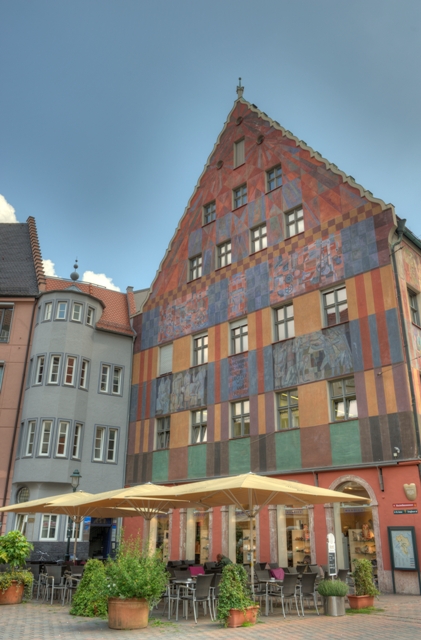
The Perlach Tower (a 10th century watchtower) and the Rathaus (17th century). As with many German cities, there's a nice square in front of the town hall and often many festivals and public events. 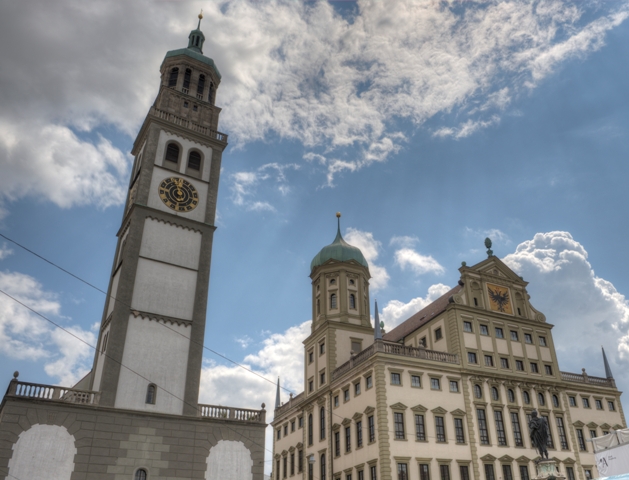
We also noticed that many buildings in Augsburg employed painted textures and ornaments, whereas often Munich uses actual sculptures. There were some really impressive examples of 3D painting, but I found the facade of the Maximilian Museum to be one of the most pleasing. 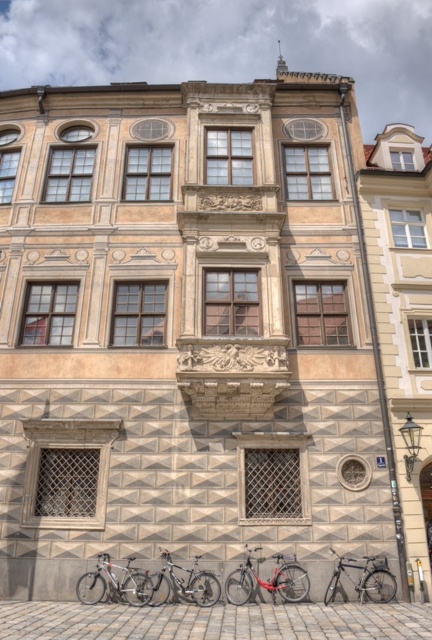
For food, we highly recommend stopping at least for cake and coffee at the Kaffeehaus Dichtl on Maximilianstraße. I'm a little ashamed to say we ate there 3 times on our two visits to Augsburg....but their cakes really are great. So were the ice cream sundaes. The food menu looked good, though we ended up having the Sunday brunch buffet. I definitely would recommend it - it's a wide variety of items and includes something for everyone. Unfortunately we were too excited about eating our cake to remember to take a photo...
Herr J got a video of one of the street musicians playing the German World Cup song. (it's originally called "'54, '74, '90, 2006" but they update it each year, replacing 2006 with 2010 last year, and even with 2011 for the women's team this year. you can watch the music video...it's catchy)
And finally we took a quick walk through the farmers' market before heading to the stadium.
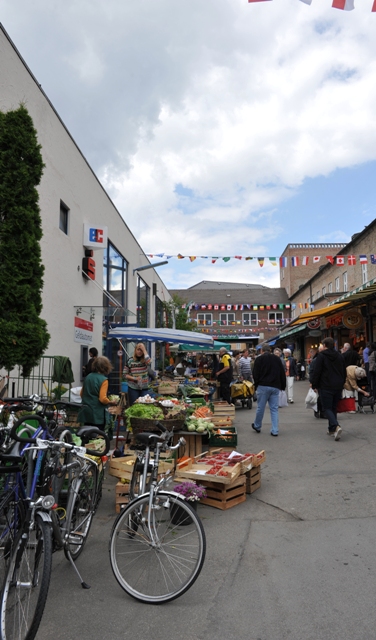
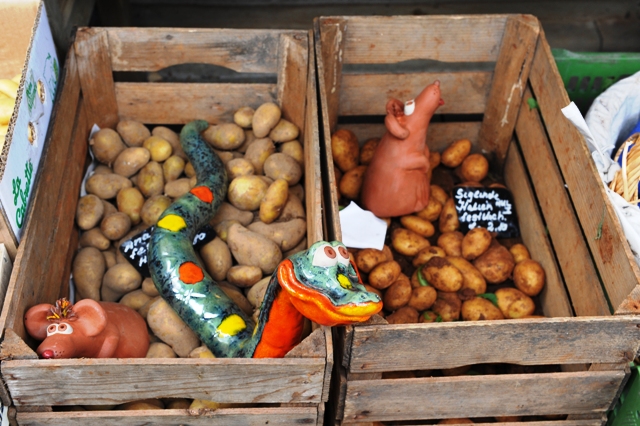
A couple of fun facts about Augsburg: It was occuped by Sweden for a couple of years during the Thirty Years War and has more official holidays than any other German city. (It has its own holiday Hohes Friedensfest, plus all the Bavarian and federal holidays).
I don't know enough about Augsburg to know the story behind this guy. He looks like one of those city mascots that are painted by various sponsors, but we didn't see any other rhinos on the street.
